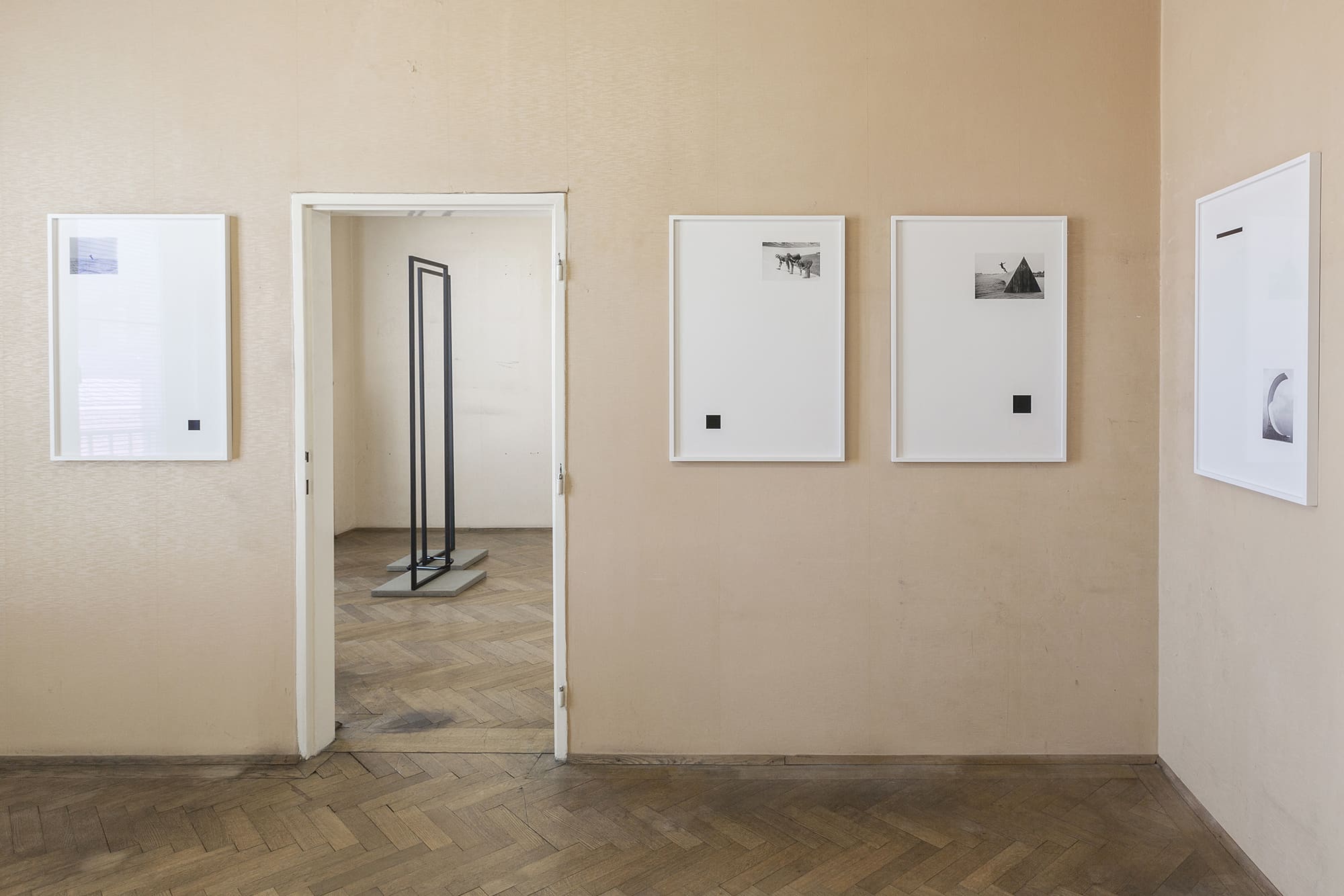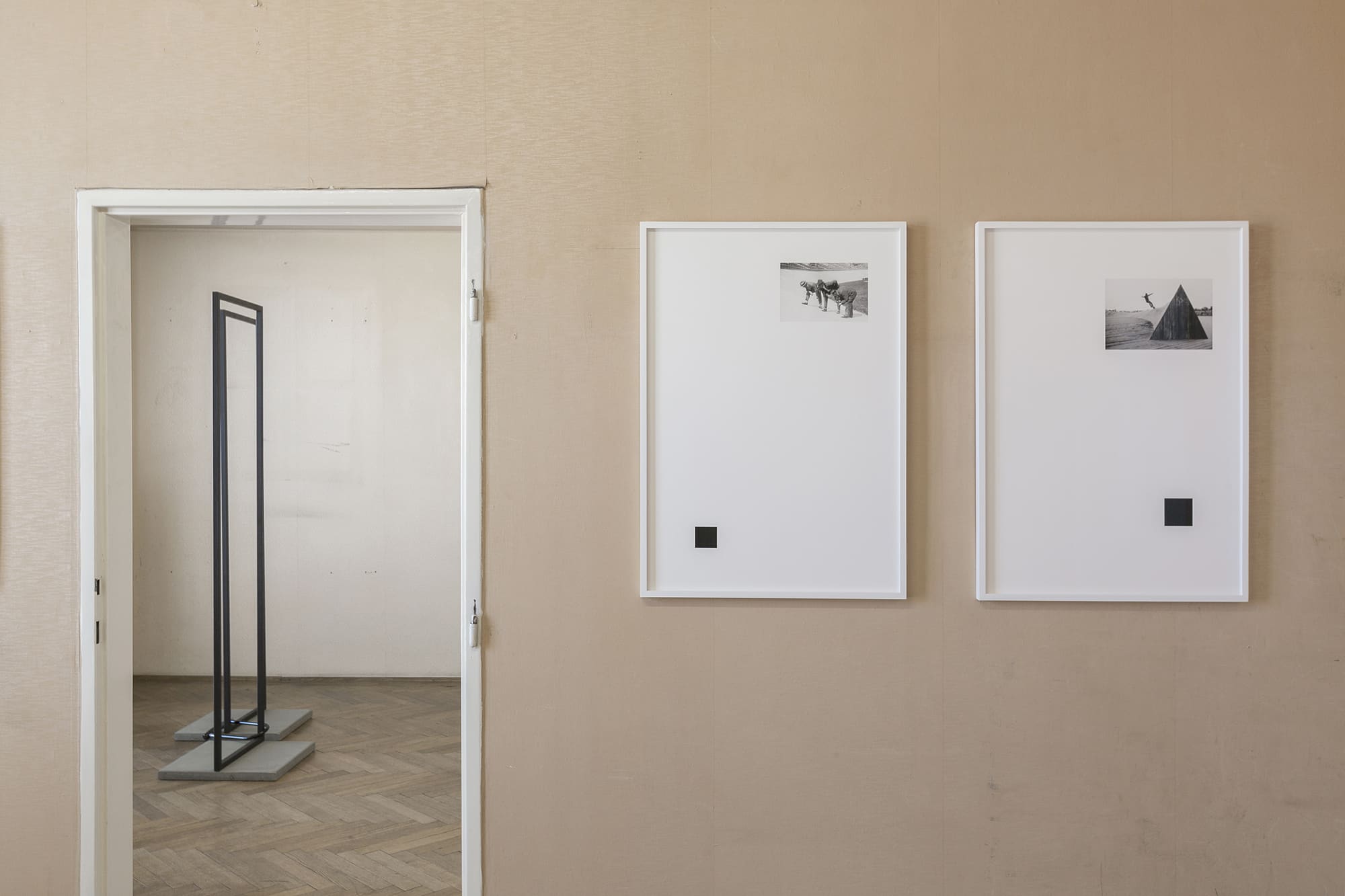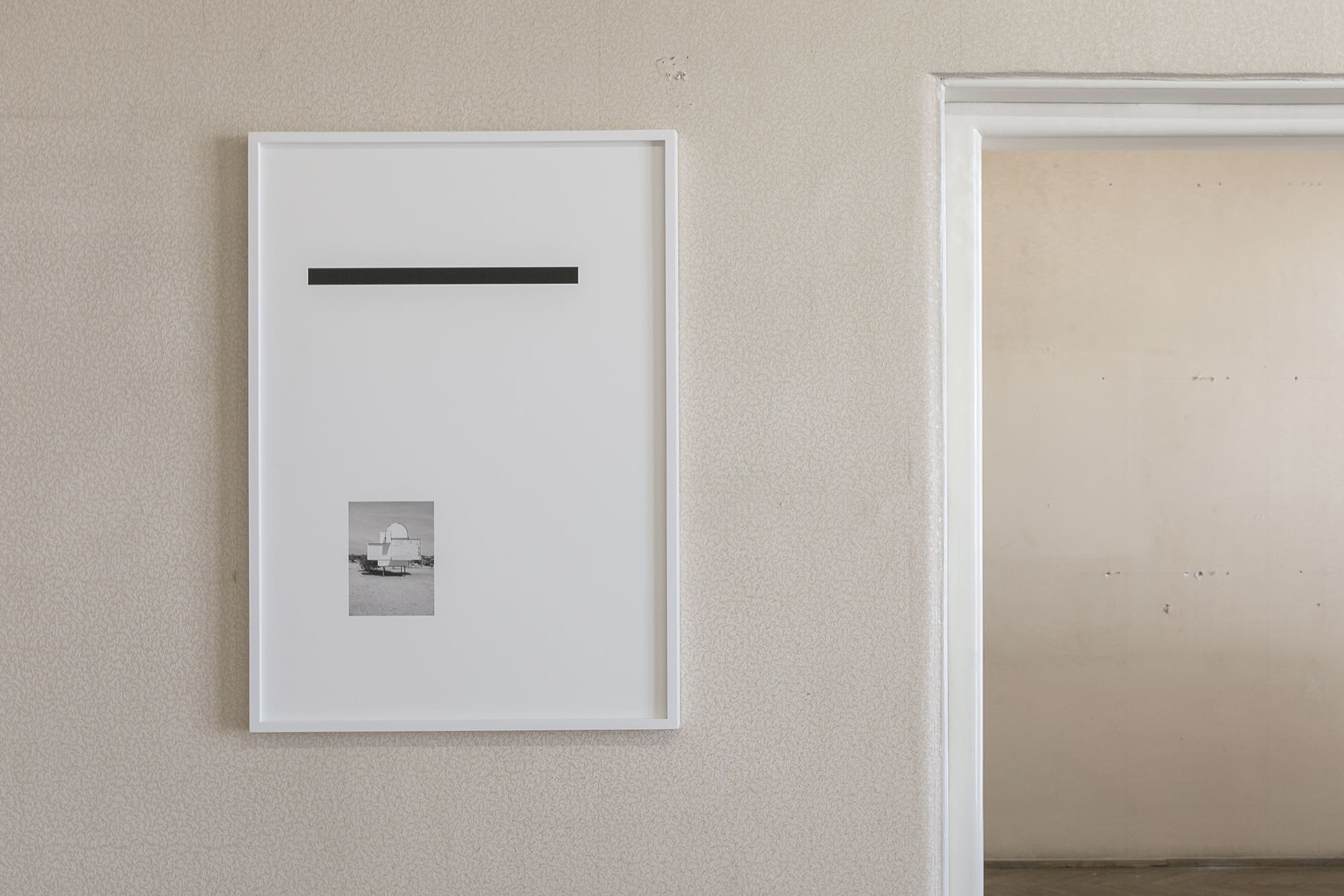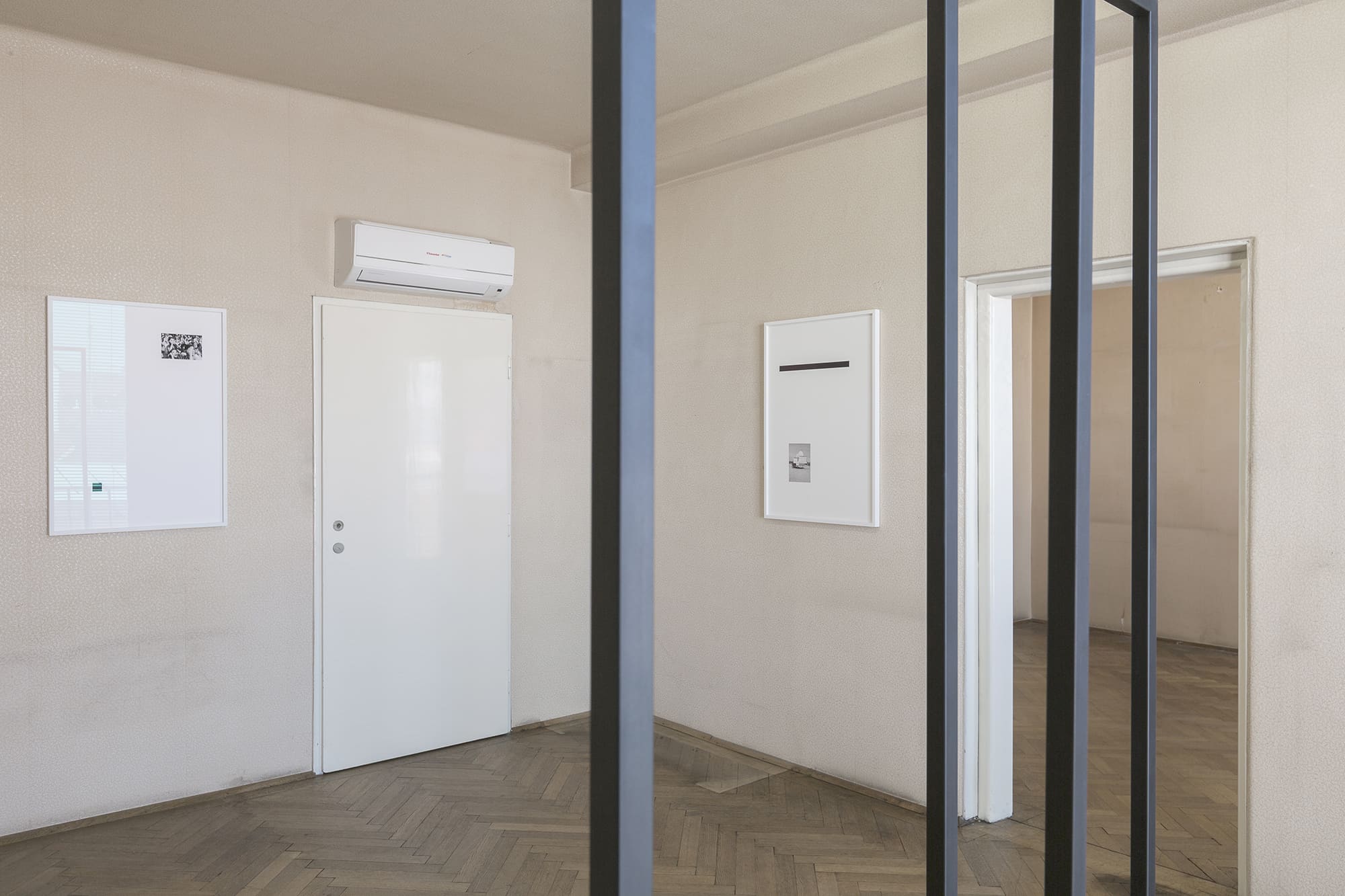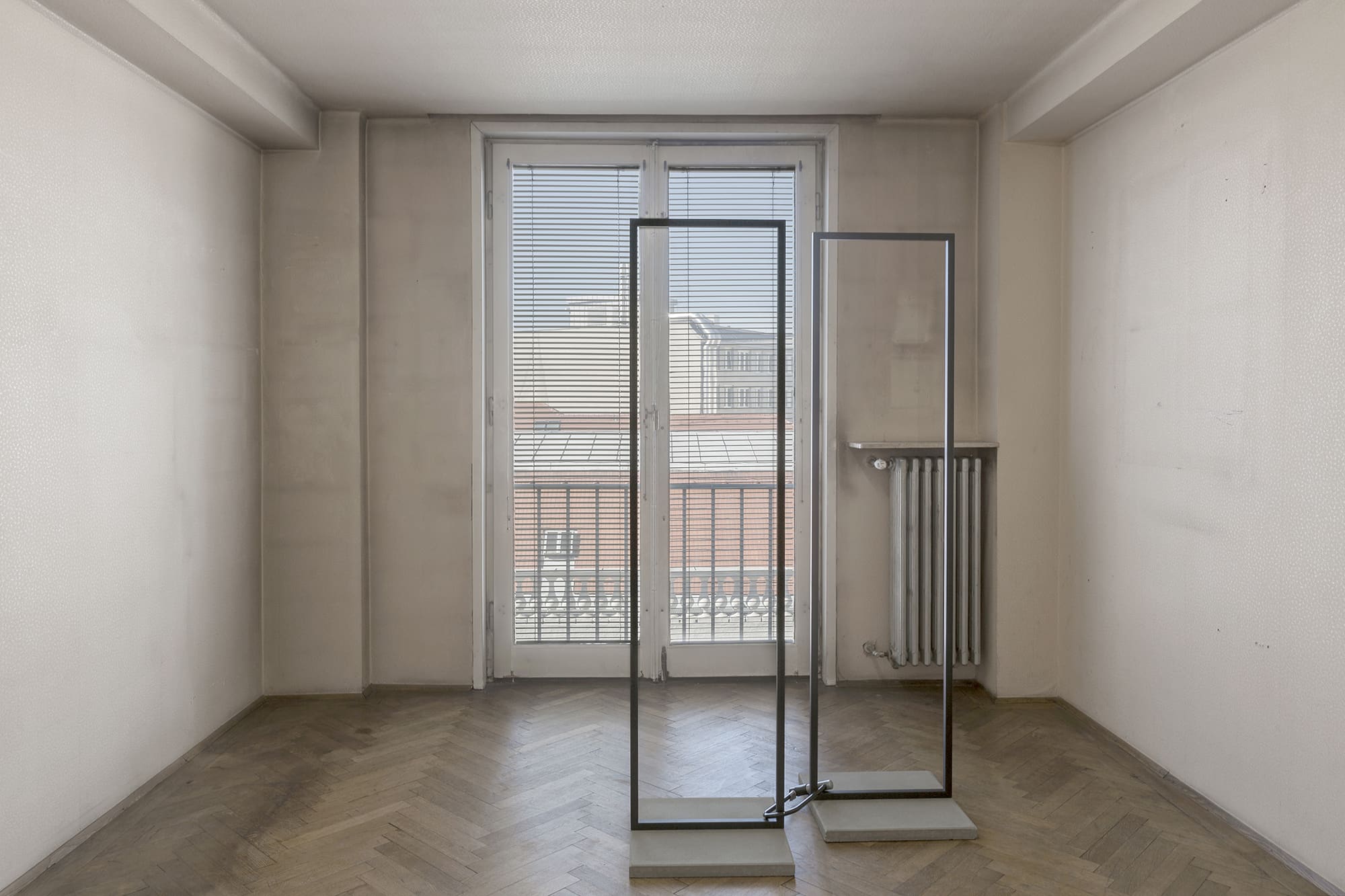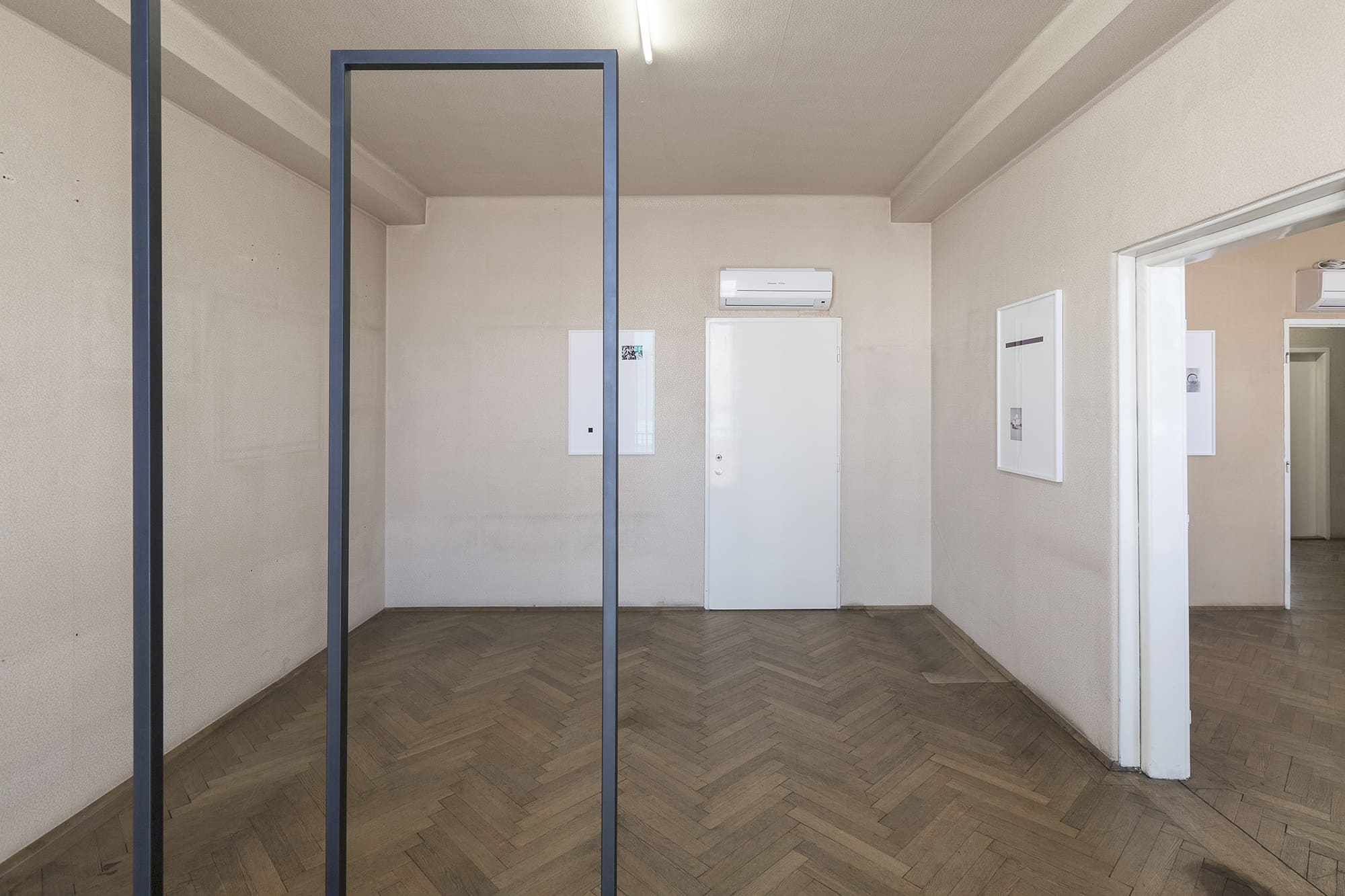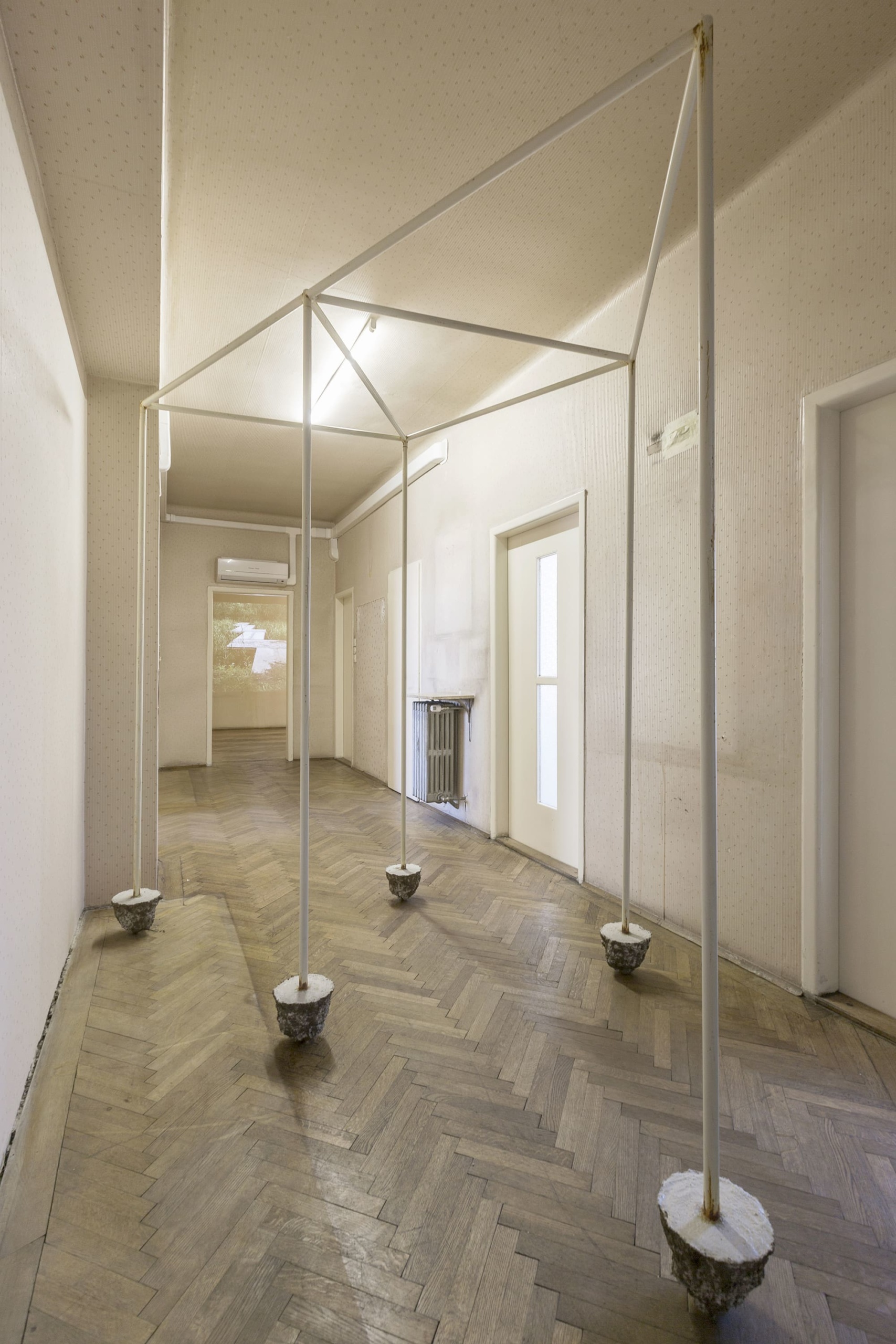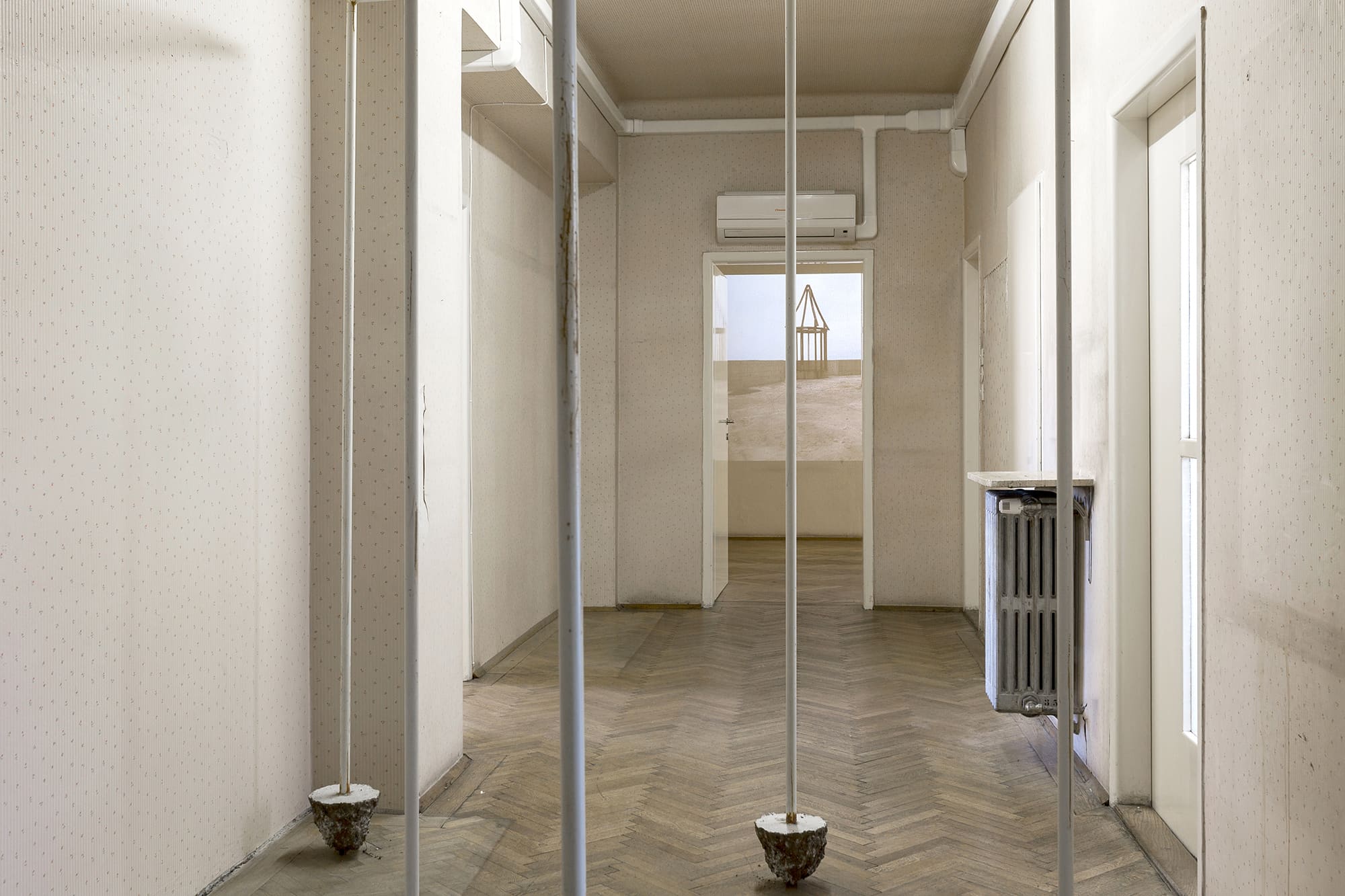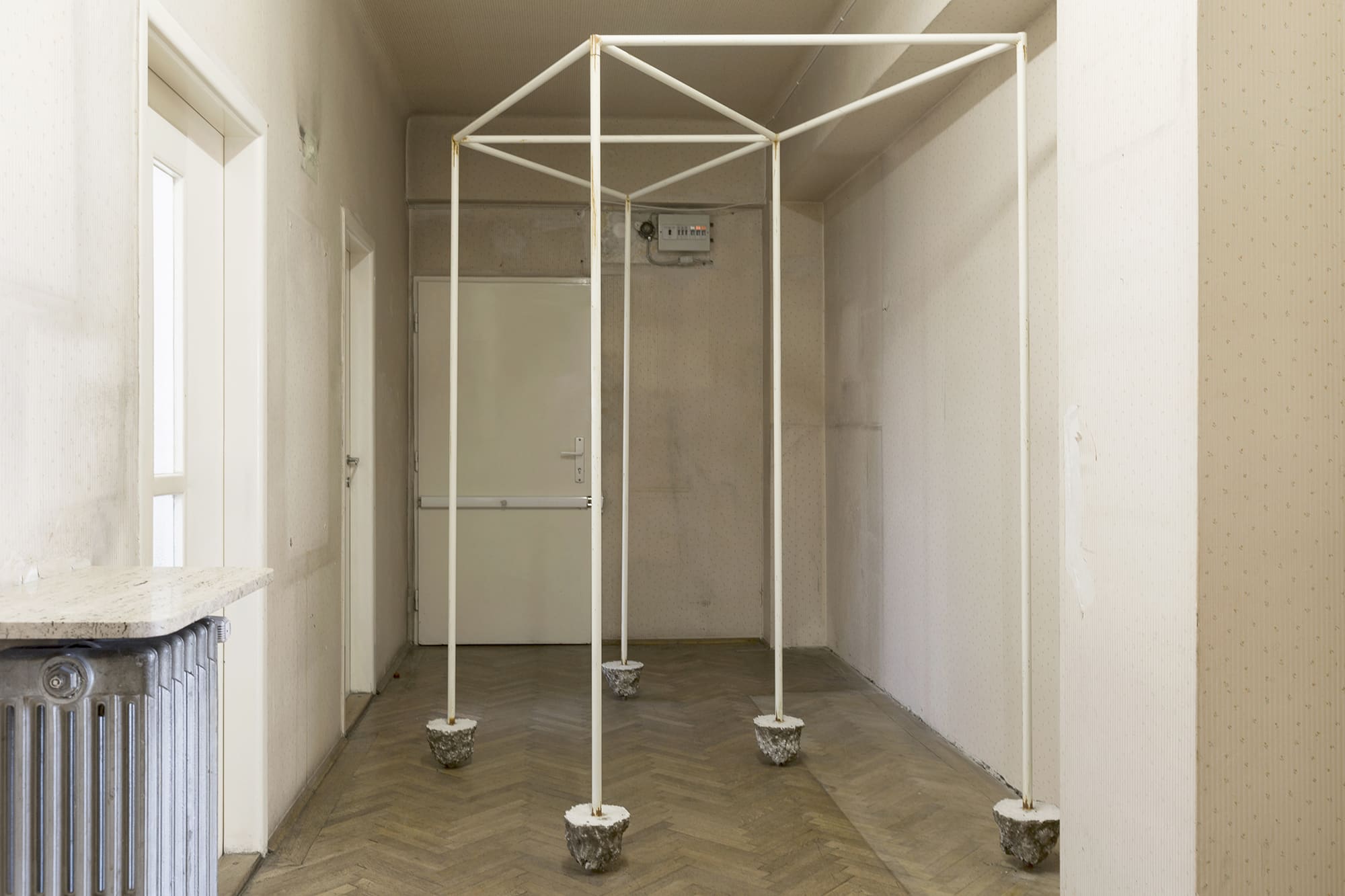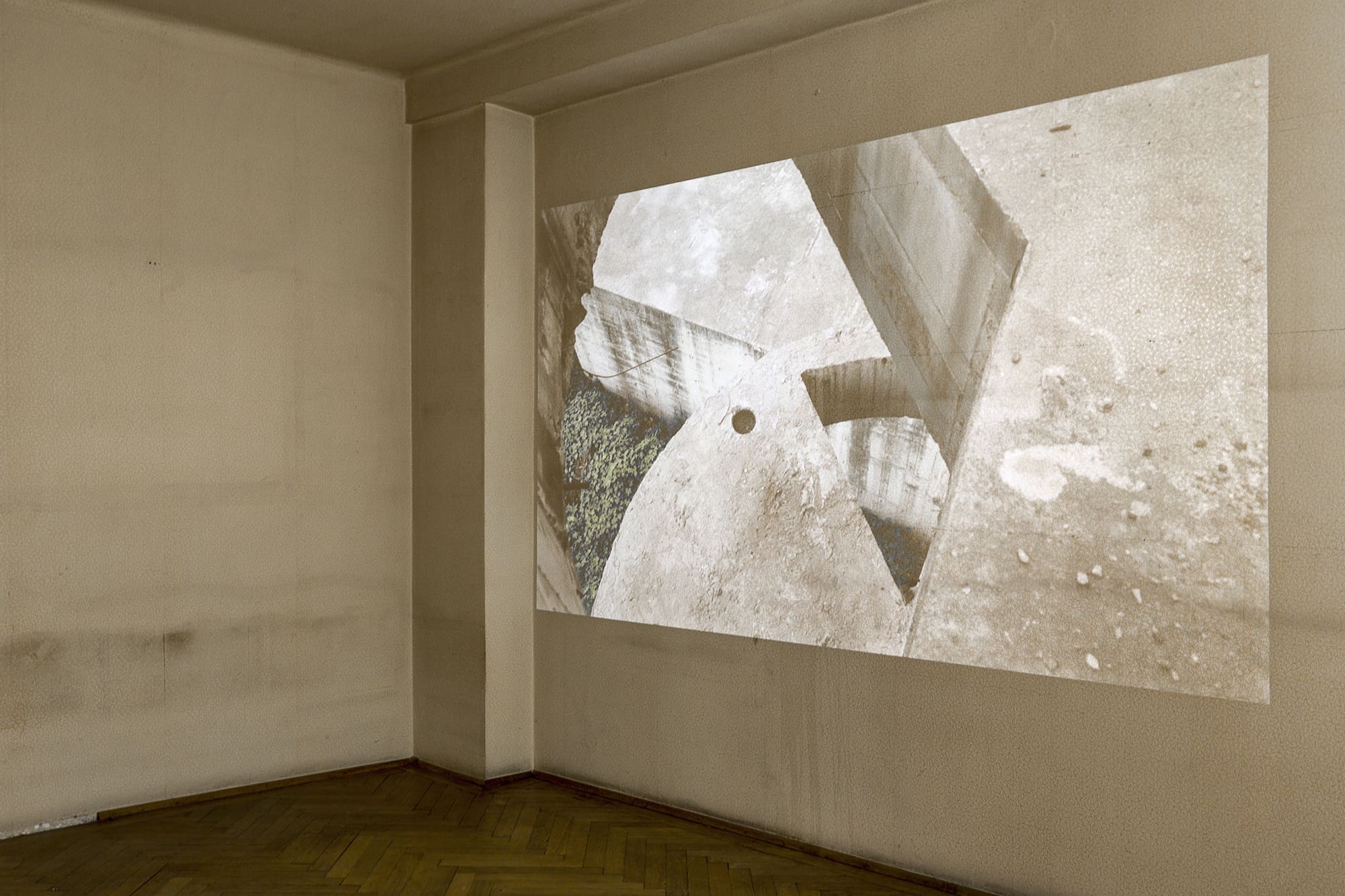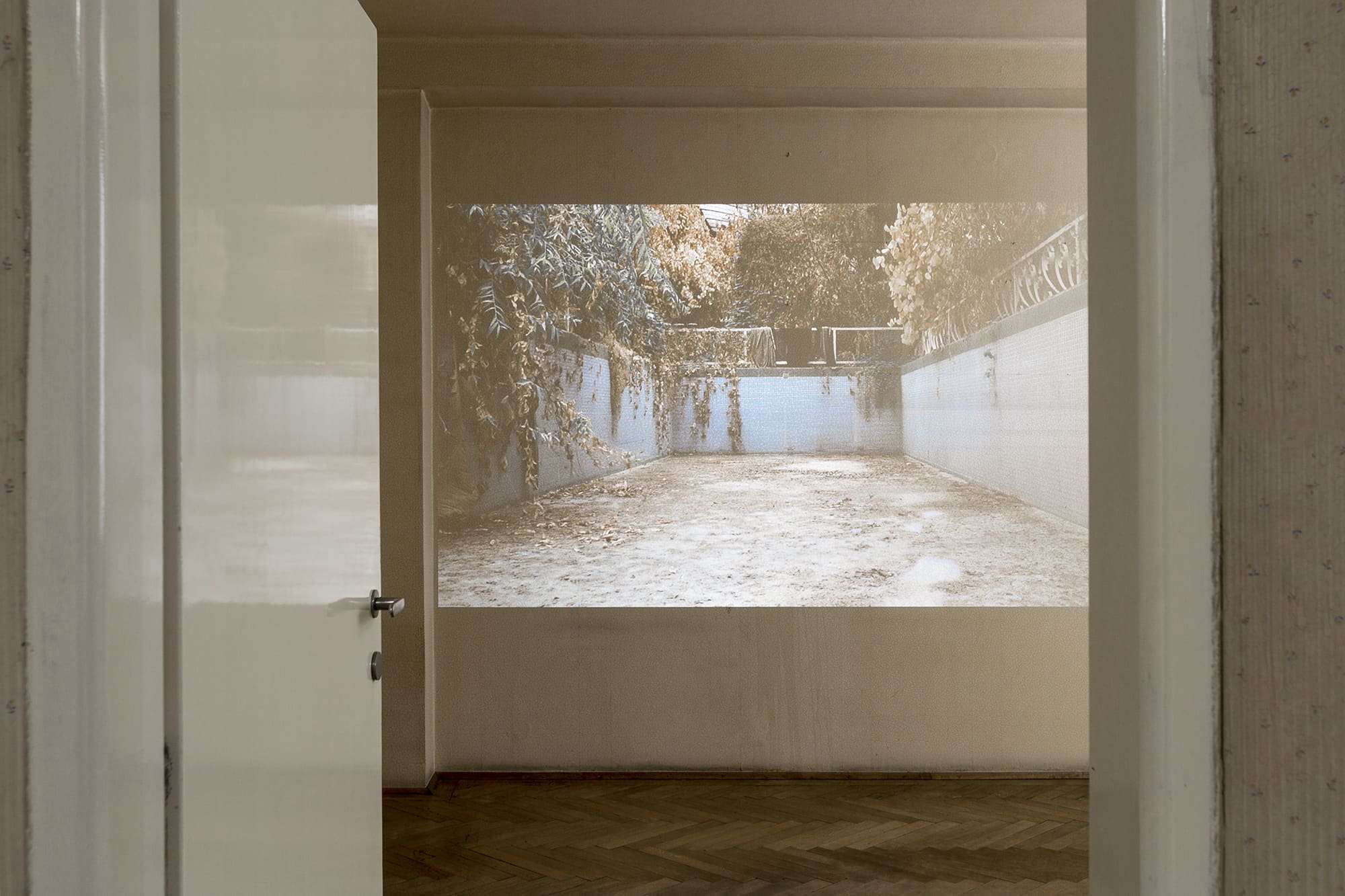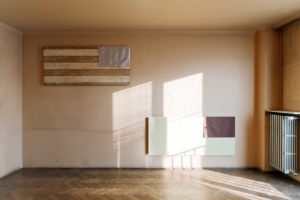In his exhibition ‘Habitat’ conceived for the Neuer Kunstverein Wien, Kay Walkowiak uses a variety of media to explore basic types of geometric forms that recur throughout history, their sociopolitical meanings in different cultures, and above all their performativity.
For example, his latest video work ‘Habitat’ (2015) shows relics of human endeavors in the outskirts of Beijing, which, as failed investments of China's rapid economic growth, now represent fallow spaces in-between: A desiccated palm house restaurant, monumental shell fragments of a Disneyland castle copy, and concrete pathways occupied by lush vegetation, appearing as if they wind upon themselves. Walkowiak captures the sculptural possibilities of these forms in a series of fixed settings, allowing the abandoned, the unused, and the forgotten to become sites of potential. With a lexicon of formal associations that range from Plato's ideas to positions of modernist and post-minimalist sculpture, old terrain comes alive again.
read moreIn other works presented in the exhibition, Kay Walkowiak, is focused on concepts of emptiness and fullness, proximity and distance, and display and situation. Thus, the exhibition visitor enters the Kunstverein through an open geometric construction made of steel, ‘Untitled’ (2015), whose exposed concrete foundations only hint at its former location as a trace. With this work, Walkowiak not only creates a space of temporary layers of fragmentary temporality, but also places the visitor in an immediate performative relationship to the work.
The sculptural objects ‘Untitled (Locked) (#1,#2)’ (2014/2015) refer to the modernist promise of the sublimity of geometric forms: Walkowiak chains together minimal objects made of steel and concrete with U-locks, creating dense choreographies and absurd narratives: the ready-mades that refer to possession turn the autonomous objects into fetishes of social rituals.
The series ‘Black Rectangles’ (2014) negotiates spatial situations of formal references through a two-dimensional medium. The minimalist compositions have the quality of an installation: narrative spaces open up between photographic motifs and black surfaces. The potentiality of the interstice of the white surface of the paper is as important here as the empty exhibition space between Walkowiak's sculptural works in installation settings. Here, too, the works always remain open and generate new meaning with each viewing.
Kay Walkowiak, born 1980 in Salzburg, lives and works in Vienna. Studied at the Academy of Fine Arts Vienna and at the University of Applied Arts Vienna.
read less
